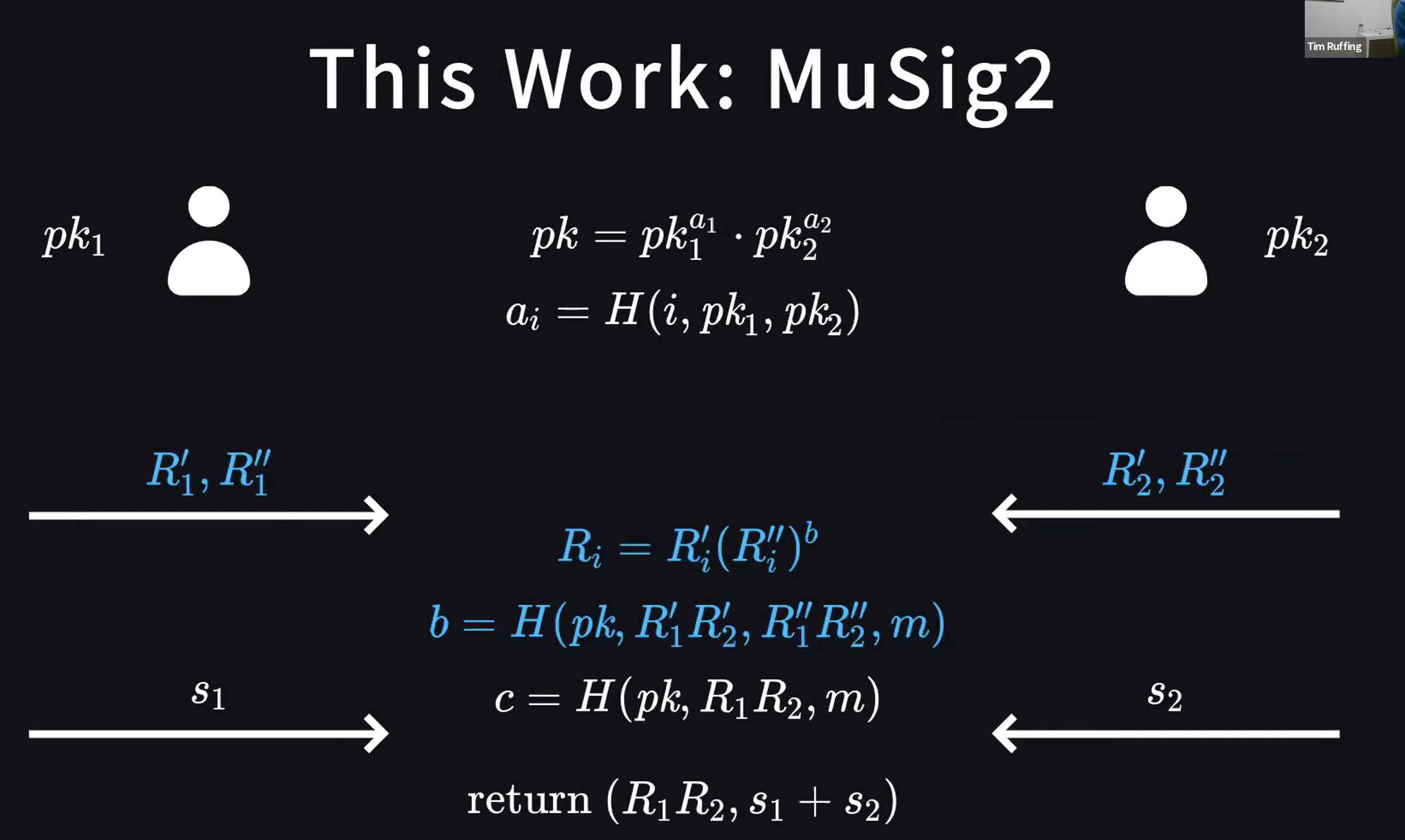In MuSig2 R''_i is added to itself b times (in multiplicative notation, it has the exponent b) but R'_i is not (it does not have the exponent b).
Why does only one of the nonce points have the exponent b and not both? I was expecting:
R_i = (R'_i.R''_i)^b
I'm assuming it saves on exponentiations and somehow offers the same security (because b is hashing both R'_i and R''_i)?
(R_i is the generator point G added to itself r_i times where r_i is the nonce. Or R_i = g^r_i in multiplicative notation.)
The following is taken from Tim Ruffing's slides at Real World Crypto 2021:

